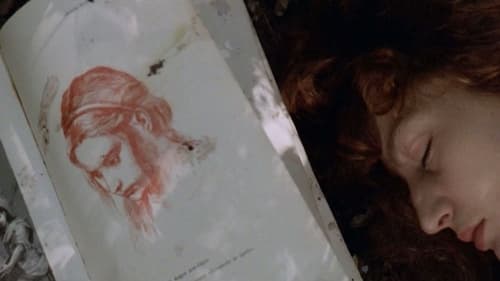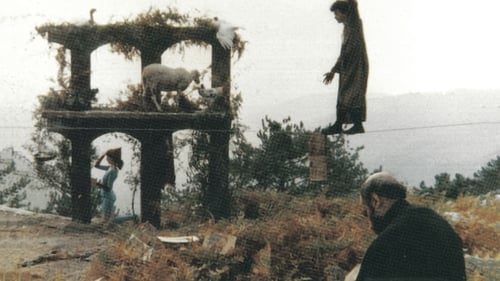Don Askarian
出生 : 1949-07-10, Stepanakert, Republic of Artsakh
死亡 : 2018-10-06
略歴
Don Askarian was an international producer, film director and screenwriter of Armenian origin.

Editor
Exercise in death - look at the terrible face of a father. To hear his hoarseness is the preparation for death.

Writer
Exercise in death - look at the terrible face of a father. To hear his hoarseness is the preparation for death.

Director
Exercise in death - look at the terrible face of a father. To hear his hoarseness is the preparation for death.

Himself
Exercise in death - look at the terrible face of a father. To hear his hoarseness is the preparation for death.

Director
This beautiful mountain saw a lot before and after the great flood.

Producer
In Holland, a group of Armenian terrorists have swung into action, murdering a Turkish intelligence agent and holding his son for ransom. As the battle of wits between the terrorists and the Dutch police plays itself out, an author from Armenia living in Rotterdam finds himself following the events as he thinks back on his life in his homeland, indulging in fantasies about his past, his future, and his obsessions.

Art Direction
In Holland, a group of Armenian terrorists have swung into action, murdering a Turkish intelligence agent and holding his son for ransom. As the battle of wits between the terrorists and the Dutch police plays itself out, an author from Armenia living in Rotterdam finds himself following the events as he thinks back on his life in his homeland, indulging in fantasies about his past, his future, and his obsessions.

Editor
In Holland, a group of Armenian terrorists have swung into action, murdering a Turkish intelligence agent and holding his son for ransom. As the battle of wits between the terrorists and the Dutch police plays itself out, an author from Armenia living in Rotterdam finds himself following the events as he thinks back on his life in his homeland, indulging in fantasies about his past, his future, and his obsessions.

Writer
In Holland, a group of Armenian terrorists have swung into action, murdering a Turkish intelligence agent and holding his son for ransom. As the battle of wits between the terrorists and the Dutch police plays itself out, an author from Armenia living in Rotterdam finds himself following the events as he thinks back on his life in his homeland, indulging in fantasies about his past, his future, and his obsessions.

Director
In Holland, a group of Armenian terrorists have swung into action, murdering a Turkish intelligence agent and holding his son for ransom. As the battle of wits between the terrorists and the Dutch police plays itself out, an author from Armenia living in Rotterdam finds himself following the events as he thinks back on his life in his homeland, indulging in fantasies about his past, his future, and his obsessions.

Levon
In Holland, a group of Armenian terrorists have swung into action, murdering a Turkish intelligence agent and holding his son for ransom. As the battle of wits between the terrorists and the Dutch police plays itself out, an author from Armenia living in Rotterdam finds himself following the events as he thinks back on his life in his homeland, indulging in fantasies about his past, his future, and his obsessions.

Art Direction
Folk-musicians earn their money on the streets of Armenian capital Yerevan, the ropewalkers dance in front of the old monastery Khor-Virap. Their improvisations appear like a poetic mirror for the psychical sensitivity of Armenians.

Editor
Folk-musicians earn their money on the streets of Armenian capital Yerevan, the ropewalkers dance in front of the old monastery Khor-Virap. Their improvisations appear like a poetic mirror for the psychical sensitivity of Armenians.

Director
Folk-musicians earn their money on the streets of Armenian capital Yerevan, the ropewalkers dance in front of the old monastery Khor-Virap. Their improvisations appear like a poetic mirror for the psychical sensitivity of Armenians.

Writer
Folk-musicians earn their money on the streets of Armenian capital Yerevan, the ropewalkers dance in front of the old monastery Khor-Virap. Their improvisations appear like a poetic mirror for the psychical sensitivity of Armenians.

Editor
“Drawing on archival footage, fragments of interviews, and scenes from his films, this newly constructed portrait of Sergey Paradjanov was composed by the highly accomplished Armenian director Don Askarian (Komitas, Avetik). According to the director's synopsis: "The year is 1989. The place is the film festival in Rotterdam. Farewell at the Hilton Hotel. And Paradjanov says, ‘Help me make Confession’. I answer, ‘As a child of two fathers, the film will be born a bastard’."

Producer
“Drawing on archival footage, fragments of interviews, and scenes from his films, this newly constructed portrait of Sergey Paradjanov was composed by the highly accomplished Armenian director Don Askarian (Komitas, Avetik). According to the director's synopsis: "The year is 1989. The place is the film festival in Rotterdam. Farewell at the Hilton Hotel. And Paradjanov says, ‘Help me make Confession’. I answer, ‘As a child of two fathers, the film will be born a bastard’."

Writer
“Drawing on archival footage, fragments of interviews, and scenes from his films, this newly constructed portrait of Sergey Paradjanov was composed by the highly accomplished Armenian director Don Askarian (Komitas, Avetik). According to the director's synopsis: "The year is 1989. The place is the film festival in Rotterdam. Farewell at the Hilton Hotel. And Paradjanov says, ‘Help me make Confession’. I answer, ‘As a child of two fathers, the film will be born a bastard’."

Director
“Drawing on archival footage, fragments of interviews, and scenes from his films, this newly constructed portrait of Sergey Paradjanov was composed by the highly accomplished Armenian director Don Askarian (Komitas, Avetik). According to the director's synopsis: "The year is 1989. The place is the film festival in Rotterdam. Farewell at the Hilton Hotel. And Paradjanov says, ‘Help me make Confession’. I answer, ‘As a child of two fathers, the film will be born a bastard’."

Production Design
Hovering between the realms of poetry and history, this stunningly photographed, elegiac work – shot mostly in long takes – mixes cryptic metaphor and fantastic symbolism to tell the story of Avetik, an Armenian filmmaker exiled in Berlin. In sensuous, lyric styling, Askarian employs dreamlike images to reflect the history of his homeland, tranquil childhood memories, images inspired by erotic medieval poetry, and autobiographical shades of his own exile in Germany.

Editor
Hovering between the realms of poetry and history, this stunningly photographed, elegiac work – shot mostly in long takes – mixes cryptic metaphor and fantastic symbolism to tell the story of Avetik, an Armenian filmmaker exiled in Berlin. In sensuous, lyric styling, Askarian employs dreamlike images to reflect the history of his homeland, tranquil childhood memories, images inspired by erotic medieval poetry, and autobiographical shades of his own exile in Germany.

Writer
Hovering between the realms of poetry and history, this stunningly photographed, elegiac work – shot mostly in long takes – mixes cryptic metaphor and fantastic symbolism to tell the story of Avetik, an Armenian filmmaker exiled in Berlin. In sensuous, lyric styling, Askarian employs dreamlike images to reflect the history of his homeland, tranquil childhood memories, images inspired by erotic medieval poetry, and autobiographical shades of his own exile in Germany.

Director
Hovering between the realms of poetry and history, this stunningly photographed, elegiac work – shot mostly in long takes – mixes cryptic metaphor and fantastic symbolism to tell the story of Avetik, an Armenian filmmaker exiled in Berlin. In sensuous, lyric styling, Askarian employs dreamlike images to reflect the history of his homeland, tranquil childhood memories, images inspired by erotic medieval poetry, and autobiographical shades of his own exile in Germany.

Producer
The film is dedicated to the Armenian monk and genius composer Komitas, and the 2 million victims on his people in Turkey in 1915. The final 20 years of Komitas life were spent in various mental hospitals. The destiny of Komitas? This is the magic beauty of Armenian culture and the abhorrent brutality of Armenian history. A cultural and artistic world that was slaughtered with a curved knife. A humanity that doggedly advances towards an apocalyptic catastrophe, that does not recognize its own original purpose, eradicates its own memory, its final roots.

Writer
The film is dedicated to the Armenian monk and genius composer Komitas, and the 2 million victims on his people in Turkey in 1915. The final 20 years of Komitas life were spent in various mental hospitals. The destiny of Komitas? This is the magic beauty of Armenian culture and the abhorrent brutality of Armenian history. A cultural and artistic world that was slaughtered with a curved knife. A humanity that doggedly advances towards an apocalyptic catastrophe, that does not recognize its own original purpose, eradicates its own memory, its final roots.

Director
The film is dedicated to the Armenian monk and genius composer Komitas, and the 2 million victims on his people in Turkey in 1915. The final 20 years of Komitas life were spent in various mental hospitals. The destiny of Komitas? This is the magic beauty of Armenian culture and the abhorrent brutality of Armenian history. A cultural and artistic world that was slaughtered with a curved knife. A humanity that doggedly advances towards an apocalyptic catastrophe, that does not recognize its own original purpose, eradicates its own memory, its final roots.

Producer
In 1988 the largest demonstrations and strikes ever in the history of the Soviet Union took place in Armenia. The immediate cause for it was the demand of Nagorno Karabakh, an autonomous area in Azerbaijan, to be an administratively accounted Armenian territory.

Director
In 1988 the largest demonstrations and strikes ever in the history of the Soviet Union took place in Armenia. The immediate cause for it was the demand of Nagorno Karabakh, an autonomous area in Azerbaijan, to be an administratively accounted Armenian territory.

Writer
In 1988 the largest demonstrations and strikes ever in the history of the Soviet Union took place in Armenia. The immediate cause for it was the demand of Nagorno Karabakh, an autonomous area in Azerbaijan, to be an administratively accounted Armenian territory.

Editor
One day the landlord Smirnov demands the widow Popova to pay an old debt which her husband left. She has no money at home and begs Smirnov to wait. The polite conversation turns quickly into an argument. Popova fetches the pistols. Smirnov realizes now that he’s in love with Popova. He confesses his love.

Costume Design
One day the landlord Smirnov demands the widow Popova to pay an old debt which her husband left. She has no money at home and begs Smirnov to wait. The polite conversation turns quickly into an argument. Popova fetches the pistols. Smirnov realizes now that he’s in love with Popova. He confesses his love.

Production Design
One day the landlord Smirnov demands the widow Popova to pay an old debt which her husband left. She has no money at home and begs Smirnov to wait. The polite conversation turns quickly into an argument. Popova fetches the pistols. Smirnov realizes now that he’s in love with Popova. He confesses his love.

Screenplay
One day the landlord Smirnov demands the widow Popova to pay an old debt which her husband left. She has no money at home and begs Smirnov to wait. The polite conversation turns quickly into an argument. Popova fetches the pistols. Smirnov realizes now that he’s in love with Popova. He confesses his love.

Director
One day the landlord Smirnov demands the widow Popova to pay an old debt which her husband left. She has no money at home and begs Smirnov to wait. The polite conversation turns quickly into an argument. Popova fetches the pistols. Smirnov realizes now that he’s in love with Popova. He confesses his love.
































